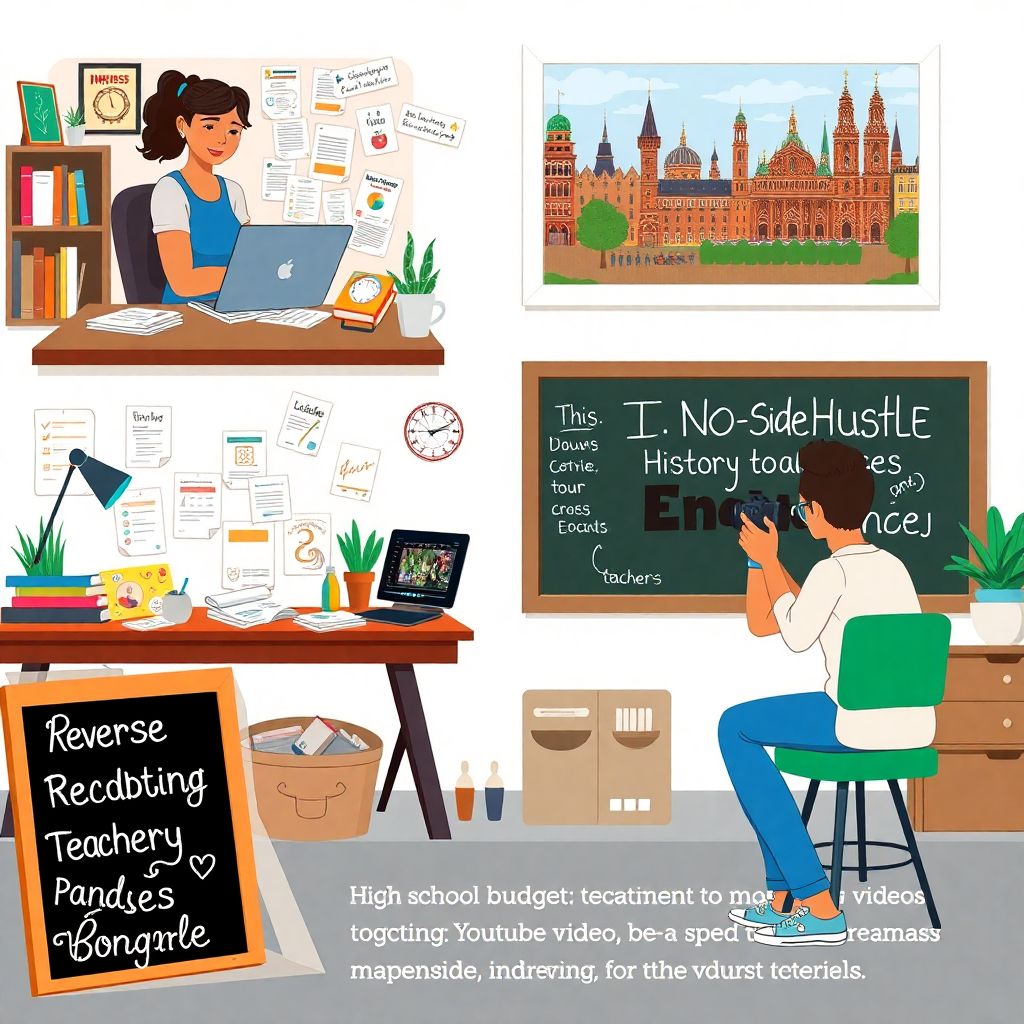Understanding the Realities: Budgeting on a Teacher’s Income
Let’s face it—being a teacher is a calling, not a get-rich-quick job. Between lesson planning, grading, and student support, there’s little time left to think about money. But what if we told you that with a few smart, unconventional strategies, budgeting on a modest teacher’s income can become both manageable and empowering? The key is to shift from a scarcity mindset to a resourceful one. It’s not about cutting every joy from your life—it’s about making each dollar work smarter.
Inspiring Stories: Teachers Who Took Control of Their Finances
Take Sarah, a fifth-grade teacher from Ohio. Despite earning a modest salary, she managed to eliminate her $12,000 credit card debt in two years. Her secret? She started a side hustle creating educational printables on Teachers Pay Teachers and used automated budgeting apps to track her spending. Another example is Marcus, a high school history teacher who spent summers leading educational tours in Europe. By combining passion and income creativity, he not only traveled the world but also saved for a down payment on a home. These stories show that financial freedom is possible—even on an educator’s budget.
Smart and Uncommon Budgeting Techniques

Most budgeting advice tells you to cut lattes and coupon-clip your way to savings. That’s fine, but teachers need strategies that respect both their time and energy. Here are a few out-of-the-box ideas that go beyond the typical:
– Reverse Budgeting: Instead of tracking every expense, decide on your savings goals first and “pay yourself” as soon as you get your paycheck. Spend what’s left guilt-free.
– Thematic Spending Weeks: Assign each week of the month a specific financial theme—like “No-Spend Challenge,” “Meal Prep Week,” or “Side Hustle Focus.” This adds structure and motivation to your month.
– Group Bartering with Colleagues: Share resources and exchange services with fellow teachers. Maybe you tutor their child in math while they help you with classroom decor or grading assistance.
These strategies help you stay engaged while avoiding the burnout that often comes with financial stress.
Professional Growth as a Financial Multiplier

Professional development isn’t just about climbing the pay scale. Strategic skill-building can open the door to supplemental income and career pivots. If you’re already spending hours creating resources, why not learn basic digital marketing and sell them online? Sites like Skillshare and Coursera offer educator-friendly courses in design, business, and writing—many of them free or discounted.
– Micro-skills to explore:
– Canva and graphic design for creating teaching materials
– Grant writing for funding classroom needs
– Public speaking to lead workshops or conferences
By investing in yourself, you’re not only expanding your teaching toolbox but also increasing your income potential.
Real-World Case Studies of Teacher-Led Projects
Let’s look at a few teacher-led initiatives that turned into financially rewarding projects:
– The Budget-Friendly Classroom Project: Emily, a middle school science teacher, created a YouTube channel demonstrating how to set up engaging labs using thrift store finds and dollar store items. Her videos gained traction, bringing in ad revenue and sponsorships from education brands—all while helping fellow teachers.
– After-School Coding Club: James launched a coding club at his school supported by a local tech company. His after-hours work earned him a stipend and eventually led him to co-author a beginner’s coding curriculum.
– Local Grant-Winning Garden Program: A group of teachers in Oregon started a school garden powered by a community grant. They grew the project into a weekend farmer’s market, with proceeds funding school trips and supplies.
Financial creativity often starts with educational passion. The trick is finding the overlap between what you love and what others need.
Top Resources for Financial Literacy and Budgeting
Educators often seek knowledge but forget to apply it to their own finances. Fortunately, there are tailored tools to help you stay on track without getting overwhelmed:
– YNAB (You Need a Budget): A practical budgeting app that teaches you to “give every dollar a job.”
– The Teacher’s Guide to Financial Independence by Rich Smith: A book written specifically for educators.
– Facebook groups like “Debt-Free Teachers”: These offer moral support, advice, and accountability from people who understand your world.
– Free learning platforms:
– EdFinancial: Offers webinars for teachers on loan forgiveness, budgeting, and saving.
– NEA Member Benefits: Includes financial counseling and planning tools exclusive to union members.
Final Thoughts: Your Budget, Your Rules

Budgeting on a teacher’s salary isn’t about deprivation—it’s about design. When you redefine your relationship with money, you unlock the freedom to focus on what really matters: your students, your goals, and your peace of mind. Remember, you don’t need a six-figure paycheck to build a secure, joyful life. All it takes is intentionality, creativity, and a willingness to try something new.
So whether you’re buying classroom supplies with your own money (again), dreaming of a summer adventure, or simply wanting to breathe easier at the end of each month—know this: You’ve got options, and you’ve got the smarts to make them work.

